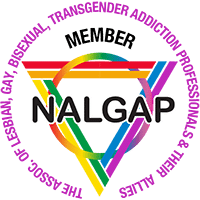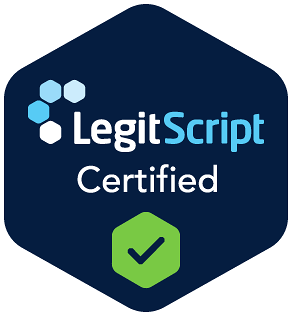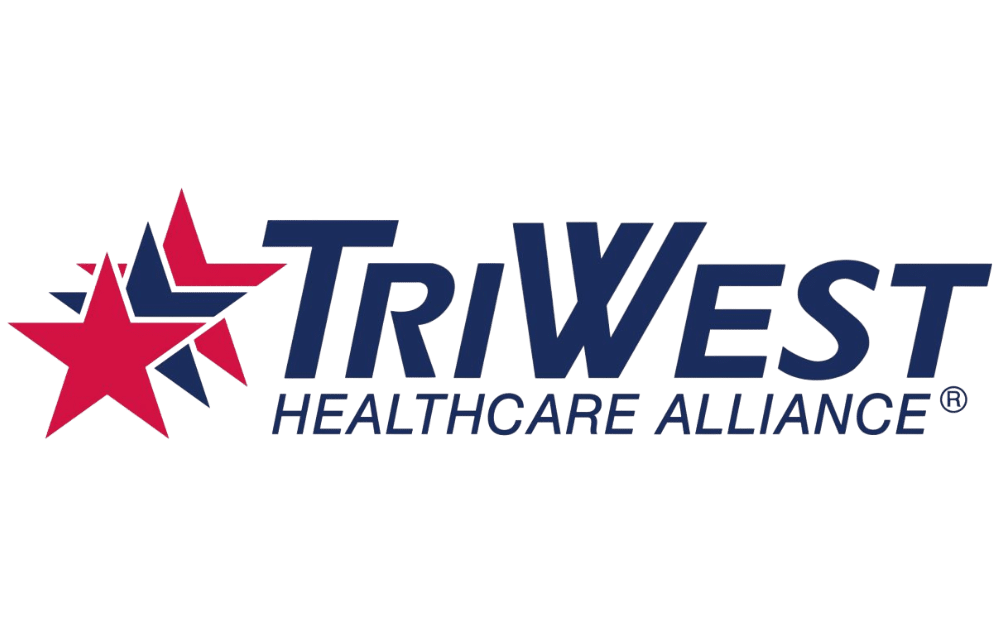Drug treatment centers in Denver
Expanding Treatment Options in Denver
In the heart of Denver, Mile High Recovery Center stands as a beacon of hope for those seeking recovery from substance use disorders. In an ever-evolving landscape of drug treatment centers in Denver, the facility has pioneered innovative strategies that prioritize patient access and personalized care. Founded in 2016, it has grown from a single sober living house to a comprehensive treatment center offering a spectrum of services tailored to meet diverse needs.
The center’s expansion mirrors a broader trend among drug treatment centers in Denver, showcasing a commitment to providing robust support systems that foster long-term recovery. Through its unique housing-to-treatment pipeline, Mile High Recovery exemplifies how continuity of care enhances outcomes for individuals battling addiction.
Integrating Clinical and Experiential Therapies
A hallmark of Mile High Recovery Center is its integration of evidence-based clinical therapies with experiential modalities. This dual approach provides a holistic treatment experience that addresses both psychological and physical aspects of addiction. Traditional therapies such as Cognitive Behavioral Therapy and Dialectical Behavior Therapy are combined with experiential treatments like adventure therapy and art and music activities, fostering engagement and therapeutic breakthroughs.
For example, equine-assisted therapy has become a pivotal component, offering clients hands-on experiences that promote emotional growth and personal insight. This combination is increasingly recognized among drug treatment centers in Denver as a critical factor in enhancing patient buy-in and therapeutic alliance.
Nutrition education further complements this approach, emphasizing the importance of physical well-being in recovery. Clients learn to nourish their bodies, thereby supporting mental health and fostering resilience in the journey towards sobriety.
Comprehensive Support for Co-occurring Disorders
At Mile High Recovery Center, treating substance use disorders involves addressing co-occurring mental health conditions. The facility’s dual-diagnosis services cater to individuals dealing with anxiety, PTSD, bipolar disorder, and schizoaffective disorders, offering a comprehensive approach to recovery. In the context of drug treatment centers in Denver, this multi-faceted care approach sets a high standard for integrated mental health support.
The center’s clinical team, which includes professionals with lived recovery experience, is adept at navigating the complexities of co-occurring disorders. They provide targeted interventions that align with each client’s unique needs, thereby promoting sustainable recovery and improved quality of life.
Innovative Multi-phase Treatment Model
Mile High Recovery Center implements a multi-phase treatment model, uniquely designed to adapt to the evolving needs of its clientele. The model includes residential treatment, short-term residential, and various outpatient programs like partial hospitalization (PHP) and intensive outpatient (IOP). This tiered structure allows patients to transition seamlessly across different levels of care based on their progress and stability.
Drug treatment centers in Denver have increasingly adopted similar models, recognizing their efficacy in providing flexible, client-centered care. By pairing medical management and anti-craving medications with group work and hands-on therapy, Mile High Recovery enhances treatment effectiveness and supports ongoing engagement in recovery efforts.
Such personalization in treatment planning underscores the center’s commitment to delivering care that is responsive to individual circumstances, fostering a supportive environment conducive to lasting change.
Bridging Recovery and Community
Central to Mile High Recovery Center’s philosophy is the belief that recovery extends beyond treatment. The center’s active alumni community plays a crucial role in supporting long-term recovery outcomes, creating an enduring network that offers encouragement and guidance. This community-based focus distinguishes Mile High from many drug treatment centers in Denver, emphasizing reintegration and ongoing support.
By fostering a sense of belonging and continuity, the alumni network provides a platform for sharing experiences and achieving collective success. Events, workshops, and peer support initiatives are integral to this vibrant community, enabling individuals to maintain strong connections and resilience in their recovery journey.
Accreditation and Industry Recognition
Endorsed by reputable organizations like the Joint Commission and NALGAP, Mile High Recovery Center exemplifies excellence in the field of addiction treatment. Such affiliations reinforce the center’s dedication to maintaining high standards of care and ethical practices.
The center is also LegitScript verified, a testament to its commitment to transparency and accountability. This recognition places Mile High among the top drug treatment centers in Denver, highlighting its role as a trusted provider that prioritizes patient safety and quality care.
Insurance and Accessibility
Mile High Recovery Center ensures that treatment is accessible to a wide range of clients by accepting major insurance carriers such as Aetna, Cigna, and Blue Cross Blue Shield. The facility’s ability to verify coverage and accept in-network reimbursement facilitates smoother admissions processes, reducing barriers to entry for individuals seeking help.
This focus on accessibility is aligned with trends across drug treatment centers in Denver, where expanding insurance partnerships enhance affordability and reach. Medication-assisted treatments like Suboxone and Vivitrol are part of the center’s comprehensive services, providing essential support for individuals navigating opioid use disorders.
Engaging Specialized Populations
Recognizing the need for inclusive treatment options, Mile High Recovery Center extends its services to specialized populations, including the LGBTQ community and military beneficiaries through Tricare. Tailored interventions ensure that all clients receive culturally competent care that honors their unique experiences and identities.
This inclusive approach is increasingly characteristic of leading drug treatment centers in Denver, reflecting a commitment to diversity and equity in healthcare. By addressing the specific needs of these populations, Mile High Recovery fosters a more inclusive and supportive environment for all individuals in recovery.
Strategic Location Enhancing Recovery
The Denver City Center location of Mile High Recovery Center is strategically designed to integrate urban and outdoor therapeutic activities into treatment plans. The proximity to natural landscapes provides clients with opportunities for outdoor therapy, reinforcing the center’s emphasis on holistic healing and connection to nature.
Such integration is a notable trend among drug treatment centers in Denver, where the natural environment is leveraged as a therapeutic resource. By combining urban accessibility with outdoor experiences, Mile High offers a dynamic and enriching recovery environment, supporting diverse therapeutic needs and preferences.
How has Mile High Recovery Center evolved to meet the diverse needs of people seeking recovery in Denver?
Mile High Recovery Center has demonstrated significant growth since its inception in 2016, transitioning from a single sober living house into a comprehensive treatment hub. By expanding to nine sober living homes and developing a full-service treatment facility, the center has shown a commitment to addressing the varied needs of individuals battling substance use disorders. This evolution reflects a broader trend in the Denver area, where drug treatment centers are increasingly focusing on personalized care approaches. For instance, the center’s housing-to-treatment pipeline ensures continuity of care, which is crucial for long-term recovery success. By seamlessly integrating these services, Mile High offers an accessible and robust support system for those on the path to recovery.
What advantages does the integration of clinical and experiential therapies offer in addiction treatment at Mile High Recovery Center?
The integration of clinical and experiential therapies at Mile High Recovery Center provides a holistic approach to treating addiction. Traditional therapies like Cognitive Behavioral Therapy (CBT) and Dialectical Behavior Therapy (DBT) are paired with experiential treatments such as adventure therapy, equine-assisted therapy, and art activities. This combination addresses both the psychological and physical aspects of addiction, fostering deeper engagement and emotional growth. Imagine a therapy session where a client works through past trauma with CBT and then participates in equine-assisted therapy, gaining personal insights through interaction with horses. This dual approach not only facilitates therapeutic breakthroughs but also enhances patient buy-in, offering a more comprehensive pathway to recovery.
Why is comprehensive support for co-occurring disorders critical in addiction treatment, and how does Mile High Recovery Center address this need?
Comprehensive support for co-occurring disorders is crucial because many individuals with substance use disorders also suffer from mental health conditions such as anxiety, PTSD, or bipolar disorder. Addressing these concurrently is vital for sustainable recovery. Mile High Recovery Center excels in this area by providing dual-diagnosis services that cater to these complexities. The clinical team, which includes professionals with lived experience, offers tailored interventions that align with each client’s needs. This personalized approach helps clients manage both their addiction and mental health challenges, promoting a higher quality of life and better recovery outcomes. Consider how a personalized therapy plan that addresses both substance abuse and PTSD could make recovery more attainable and comprehensive.
What makes the multi-phase treatment model at Mile High Recovery Center effective for individuals seeking addiction treatment?
The multi-phase treatment model at Mile High Recovery Center is effective because it allows for flexibility and personalization in care. This model includes residential treatment, partial hospitalization (PHP), and intensive outpatient (IOP) programs, enabling clients to transition smoothly through various levels of care as they progress. By pairing traditional therapies with medical management and anti-craving medications, the center ensures that each client’s unique needs are met. Picture a client starting with residential treatment and then moving to outpatient care as they gain stability, all while receiving consistent support tailored to their changing needs. This adaptable approach fosters resilience and supports enduring recovery efforts.
How does Mile High Recovery Center facilitate enduring recovery and community reintegration for its clients?
Mile High Recovery Center places a strong emphasis on community reintegration and long-term recovery support through its active alumni network. This community-centric approach provides clients with a sense of belonging and ongoing encouragement, which are critical for maintaining sobriety post-treatment. Through events, workshops, and peer support initiatives, alumni are able to share experiences and offer guidance, creating a supportive environment that extends beyond treatment. Imagine being part of a network where you can continue to connect with others who understand your journey, providing mutual support and accountability. This focus on community helps clients forge lasting connections that bolster their recovery journey.
Why is accreditation and industry recognition important for a treatment center, and how does Mile High Recovery Center demonstrate its commitment to excellence?
Accreditation and industry recognition are vital indicators of a treatment center’s adherence to high standards of care and ethical practices. Mile High Recovery Center’s endorsements by The Joint Commission and NALGAP, along with its LegitScript verification, underscore its dedication to delivering quality care. These credentials assure clients that the center follows rigorous protocols and is committed to patient safety and transparency. It’s like having a seal of trust, ensuring that the center’s services are not only top-notch but also accountable. This recognition places Mile High among the leading addiction treatment centers, demonstrating its role as a trusted provider in the Denver area.
How does Mile High Recovery Center address accessibility and affordability for clients seeking addiction treatment?
Accessibility and affordability are crucial for individuals seeking addiction treatment, and Mile High Recovery Center prioritizes these aspects by accepting major insurance carriers like Aetna, Cigna, and Blue Cross Blue Shield. The center’s ability to verify coverage and accept in-network reimbursement reduces entry barriers for those seeking help. This focus on insurance partnerships not only enhances affordability but also broadens the center’s reach, making it easier for clients to access comprehensive care, including medication-assisted treatments like Suboxone and Vivitrol. By streamlining the admissions process, Mile High ensures that more individuals can begin their recovery journey without unnecessary financial obstacles.
In what ways does Mile High Recovery Center cater to specialized populations in its addiction treatment programs?
Recognizing the need for inclusive and culturally competent care, Mile High Recovery Center offers tailored interventions for specialized populations, including the LGBTQ community and military beneficiaries through Tricare. By providing services that honor the unique experiences and identities of these groups, the center fosters an environment of diversity and equity. For example, imagine a client from the LGBTQ community receiving support from staff who understand their specific challenges, creating a safe and welcoming space for healing. This commitment to inclusivity ensures that all clients have access to treatment that respects their individuality and supports their recovery journey.
How does the strategic location of Mile High Recovery Center enhance the recovery experience for its clients?
The strategic location of Mile High Recovery Center in the Denver City Center is advantageous as it offers both urban convenience and proximity to natural landscapes, which are used as therapeutic resources. Integrating urban and outdoor activities into treatment plans helps clients connect with nature, which can be incredibly healing. For instance, outdoor therapy sessions might include hiking or meditation in nearby parks, providing a serene backdrop for reflection and growth. This blend of accessibility and nature-based therapy supports a dynamic recovery environment that meets various therapeutic needs and preferences, enhancing the overall treatment experience.
Resources
- Substance Abuse and Mental Health Services Administration (SAMHSA) – SAMHSA is the leading agency within the U.S. Department of Health and Human Services focused on improving behavioral health outcomes for individuals with substance use disorders.
- National Alliance on Mental Illness (NAMI) – NAMI is the largest grassroots mental health organization in the United States, dedicated to building better lives for those affected by mental illness.
- National Institute on Drug Abuse (NIDA) – NIDA is a government agency that supports and conducts research on drug use and addiction in order to improve individual and public health.
- American Psychiatric Association (APA) – The APA is a medical specialty society representing more than 38,000 psychiatric physicians worldwide, working to ensure humane care and effective treatment for all persons with mental disorders.
- Centers for Disease Control and Prevention (CDC) – Mental Health – The CDC provides information on mental health, including resources for promoting mental well-being and preventing mental disorders.
















